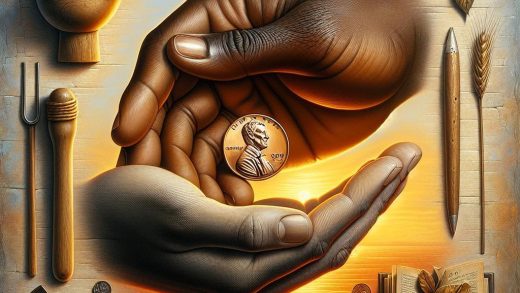Mastering Your Finances: The Art of Crafting and Committing to Your Budget
In a world where money often dictates our choices and shapes our future, the ability to master your finances emerges as an essential skill. Imagine standing at the helm of your financial ship, navigating through the choppy waters of expenses and income, steering toward a destination filled with stability and peace of mind. At the heart of this journey lies a vital tool: your budget. Crafting a budget isn’t merely a numerical exercise; it’s an art form that requires intention, creativity, and, above all, commitment. This article delves into the intricate process of budgeting, offering insights and strategies to not only create an effective framework for managing your money but to also solidify your resolve in adhering to it. As we explore the principles and practices of financial mastery, you’ll discover how to transform your budget into a powerful ally in achieving your life goals, fostering not just financial wellness but also empowering your personal growth along the way.
Understanding Your Financial Landscape for Effective Budgeting
To successfully navigate your financial landscape, it’s essential to grasp the various elements that influence your spending and saving habits. Begin by identifying your primary sources of income, which can include:
- Salary: Your regular paycheck from employment.
- Side Hustles: Earnings from freelance work or part-time gigs.
- Passive Income: Revenue from investments or rental properties.
Once you have a clear picture of your income, shift your focus to tracking your key expenses. Categorizing these can help illuminate areas where spending can be optimized:
- Fixed Expenses: Monthly bills such as rent, utilities, and subscriptions.
- Variable Expenses: Costs that fluctuate, like groceries and entertainment.
- Savings and Investments: Funds earmarked for future needs or growth.
Utilizing a simple budget table can further clarify your financial situation:
| Category | Monthly Amount |
|---|---|
| Income | $4,000 |
| Fixed Expenses | $1,500 |
| Variable Expenses | $800 |
| Savings | $700 |
| Investments | $1,000 |
Recognizing how each component interacts will empower you to design a budget that not only aligns with your current lifestyle but also sets the foundation for future financial stability.
Essential Strategies for Building a Sustainable Budget Plan
Creating a sustainable budget plan requires a thoughtful approach that balances your desires with your financial capabilities. Begin by assessing your **fixed expenses**, such as rent or mortgage payments, utilities, and insurance. Next, evaluate your **variable expenses**, which can include dining out and entertainment. To gain a clearer picture, consider implementing the following strategies:
- Track Your Spending: Utilize budgeting apps or spreadsheets to monitor where your money is going.
- Set Realistic Goals: Establish short-term and long-term financial objectives, keeping them attainable to avoid burnout.
- Create an Emergency Fund: Allocate a portion of your income to safeguard against unexpected expenses.
- Regular Review: Schedule monthly check-ins to adjust your budget based on changing circumstances.
Additionally, consider using a simple table to visualize your savings goals:
| Goal | Target Amount | Deadline |
|---|---|---|
| Vacation Fund | $2,000 | December 2024 |
| Emergency Fund | $5,000 | June 2025 |
| Home Renovation | $10,000 | March 2026 |
Employing these strategies will not only keep your budget on track but also foster a healthier financial mindset.
Closing Remarks
As we draw the curtain on our exploration of mastering your finances, it’s clear that the journey to budgeting isn’t merely about numbers; it’s about empowerment, discipline, and growth. Crafting a budget is akin to painting on a blank canvas, where every brush stroke reflects your values, aspirations, and dreams. By committing to your financial plan, you not only gain clarity on your spending habits but also cultivate a sense of control over your future.
Remember, the art of budgeting isn’t just a one-time project—it’s an ongoing practice that evolves as your life changes. Embrace the process, revisit your budget regularly, and allow it to guide you towards your financial goals. With patience and resilience, you can turn the intricacies of personal finance into a masterpiece uniquely yours.
Now, equipped with the tools and insights to craft your budget, step boldly into this next chapter of financial self-mastery. Your journey begins with a single decision: to invest in yourself and create a future defined not by scarcity, but by the endless possibilities borne from mindful financial choices.









